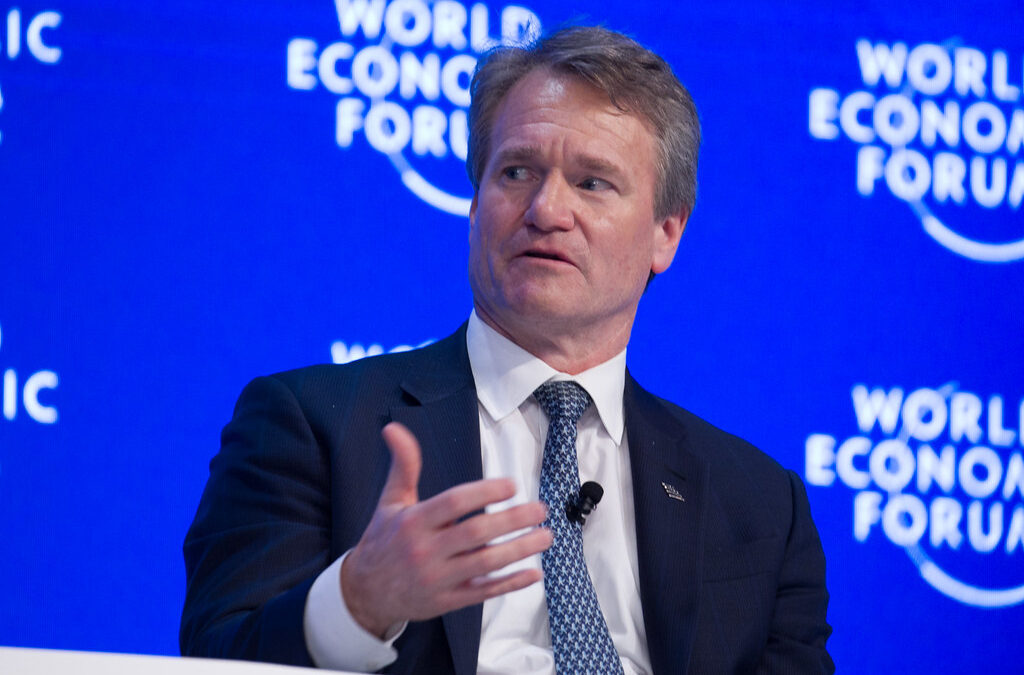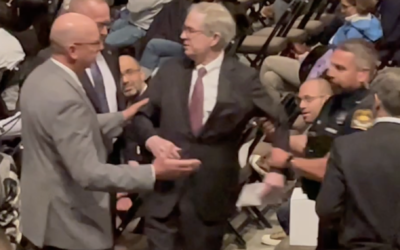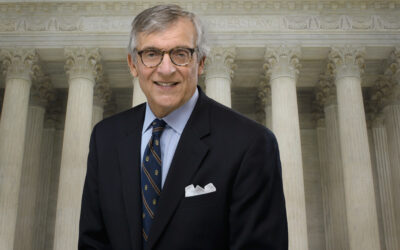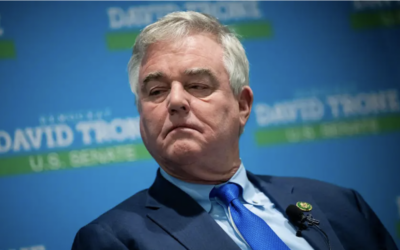This morning, National Legal and Policy Center presented a proposal at Bank of America Corporation‘s annual shareholder meeting that asks the board to implement a policy to require the Chair of the Board of Directors to be an independent member from the CEO. In other words, the same executive could not hold both roles.
Currently Brian Moynihan (pictured above) is Chairman and CEO.
Bank of America’s board of directors opposed our proposal, as explained on page 93 of the company’s proxy statement. NLPC’s response to the board’s opposition statement was filed with the Securities and Exchange Commission earlier this month.
Speaking at the meeting as sponsor of the resolution was Paul Chesser, director of NLPC’s Corporate Integrity Project. A transcript of his three-minute remarks, which you can listen to here, follows:
Good morning.
Bank of America’s board opposes our proposal.
They say an independent chair policy prevents the “flexibility” they need.
They also say they don’t want a “singular, fixed leadership model.”
To that I ask, should we demand “flexibility” in the leadership that governs the United States?
I would argue that the U.S. government is unnecessarily rigid, and considering our current economic problems and our geopolitical situation, that we need to change our governance structure based on the current “circumstances and needs.”
Of course that is silly, but so is the insistence by the Bank of America board that it must be able to bend the rules willy-nilly according to whether it likes how the BofA leader is running things under the circumstances and needs of a given moment.
But since the board insists that this is the ideal way to run things, I will highlight a few questionable decisions by Mr. Moynihan, in the hopes they might start changing their minds about their own rigidness:
Number One: As leader of Bank of America, Mr. Moynihan has embedded himself in the World Economic Forum’s agenda.
My fellow shareholders may be surprised to learn that the World Economic Forum prioritizes transhumanism, abolition of private property, consumption of bugs, social credit systems, the “Great Reset,” and other Orwellian objectives.
Why is this important for Bank of America to boost these globalists at the expense of US sovereignty and values?
Number Two: As chairman of the WEF’s International Business Council Stakeholder Capitalism Metrics Initiative, Mr. Moynihan worked to create so-called stakeholder standards that companies would be required to follow.
After setting up these globalist rules, he said of any companies that fell short of this new social credit system, that “we shouldn’t do business with you.”
He also said the purpose of the standards was to “align capitalism with what society wants from it.”
Excuse me – but the very definition of capitalism is to deliver what people want from it.
If you think you have the power and authority to align capitalism for some writ-large societal agenda that you demand, then there is something wrong with you, and you are not to be trusted.
Number Three: Bank of America handed over the financial data of 211 clients to federal agents following the January 2021 U.S. Capitol disturbance, simply because those customers visited an ATM somewhere in Washington DC at the time of the alleged “riot.”
Is this how Mr. Moynihan believes the company should protect customers and their data?
These examples are all I can fit into three minutes, but there are many more.
Tell me, though, based on just these three examples – why should anyone trust Mr. Moynihan and Bank of America with their money, their identity protection, their capitalism and their freedoms?
Read NLPC’s shareholder proposal for the Bank of America Corporation annual meeting here.
Listen to Chesser’s three-minute remarks in support of the proposal here.
Read NLPC’s response, filed with the SEC, to the Bank of America board’s opposition to our shareholder proposal here.
In another report filed at the SEC, NLPC also opposed three other “Net Zero” proposals brought forth by activist groups who seek to destroy the fossil fuel industry. You can read NLPC’s report on those proposals here.









